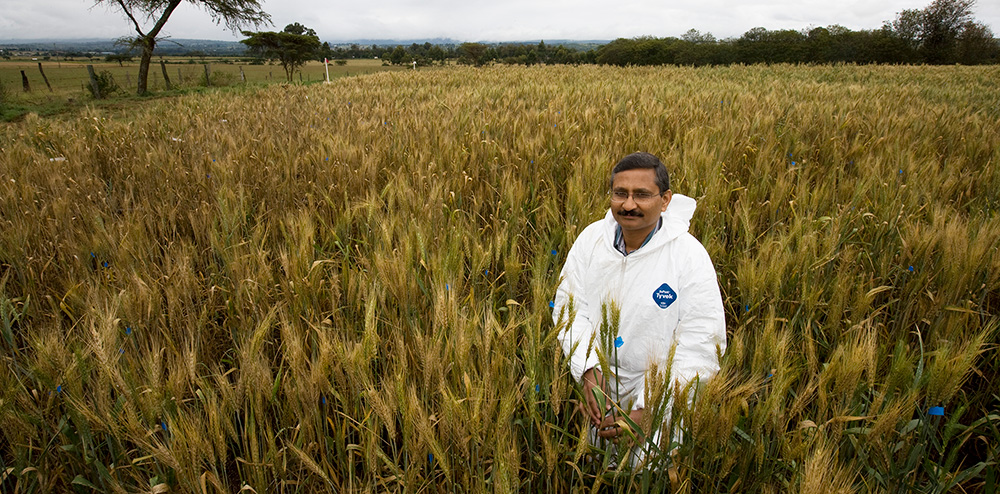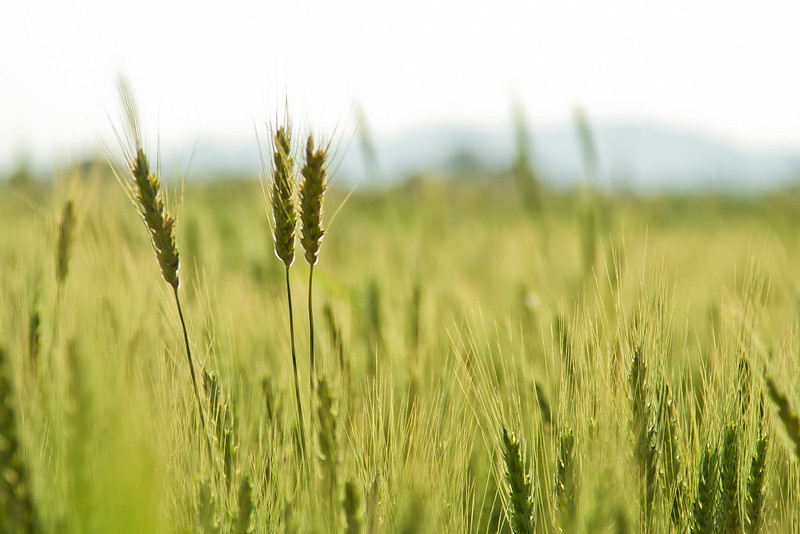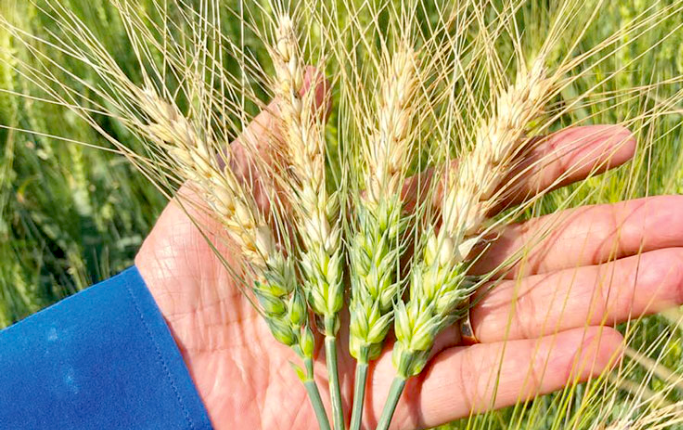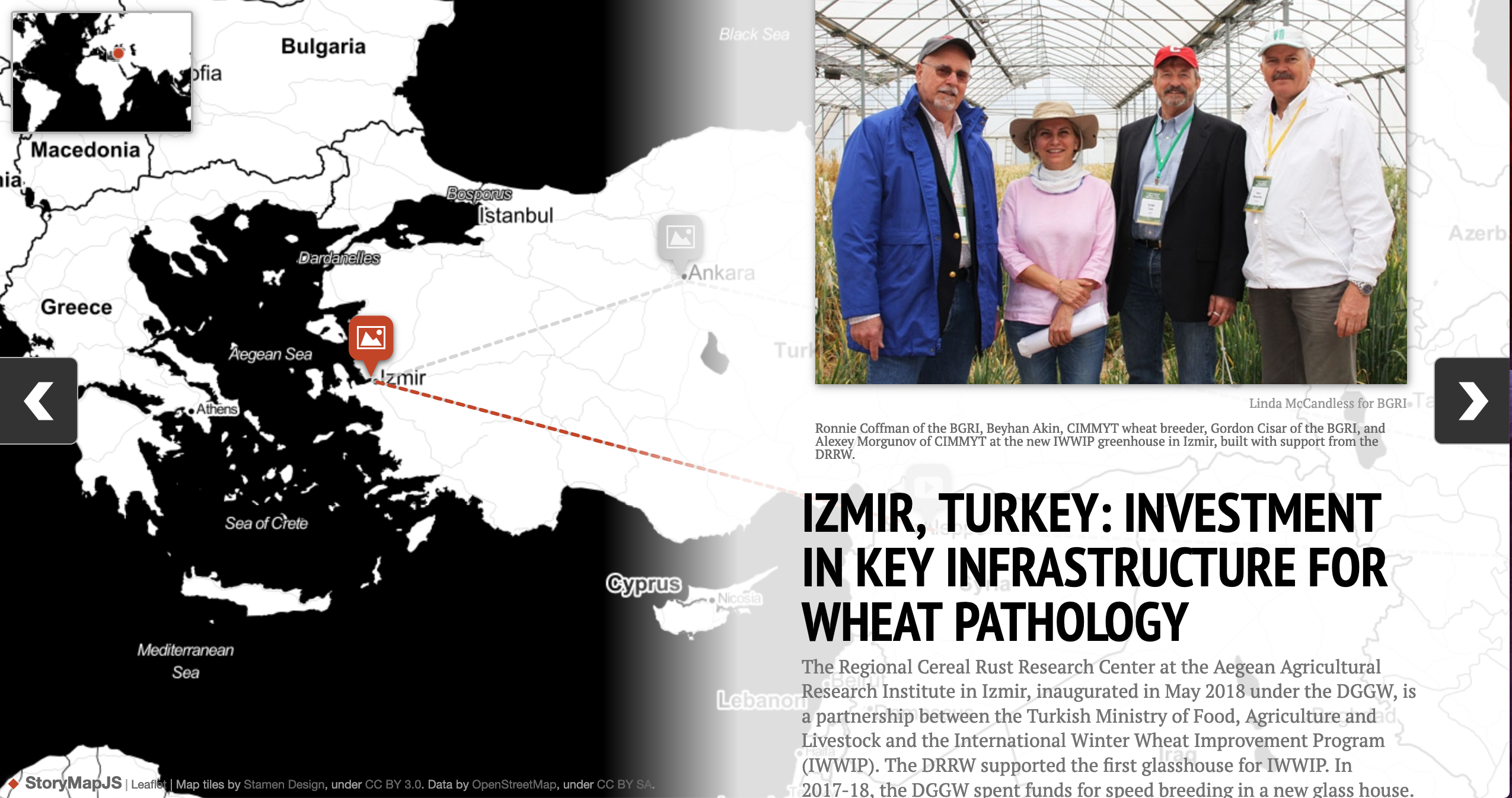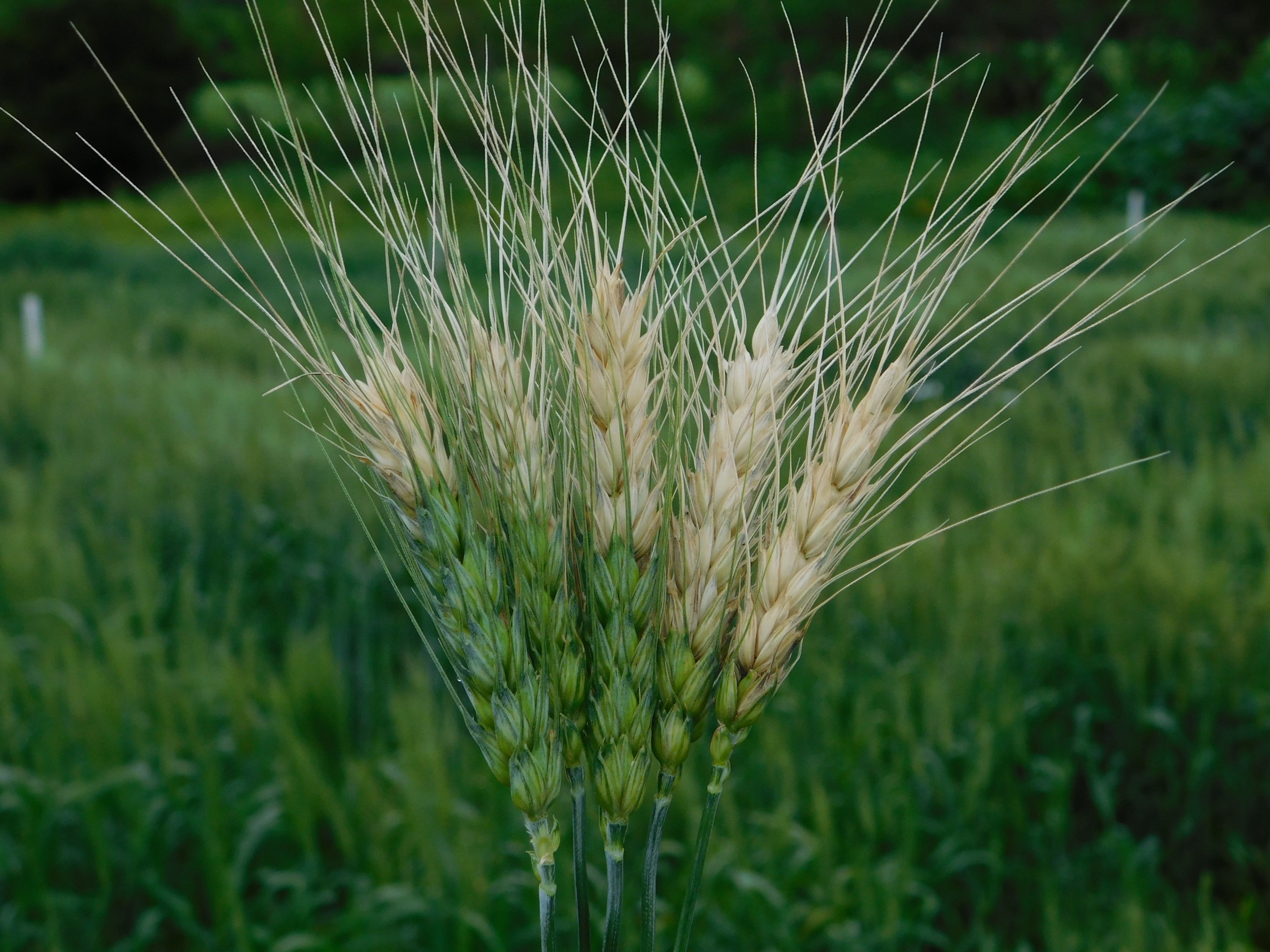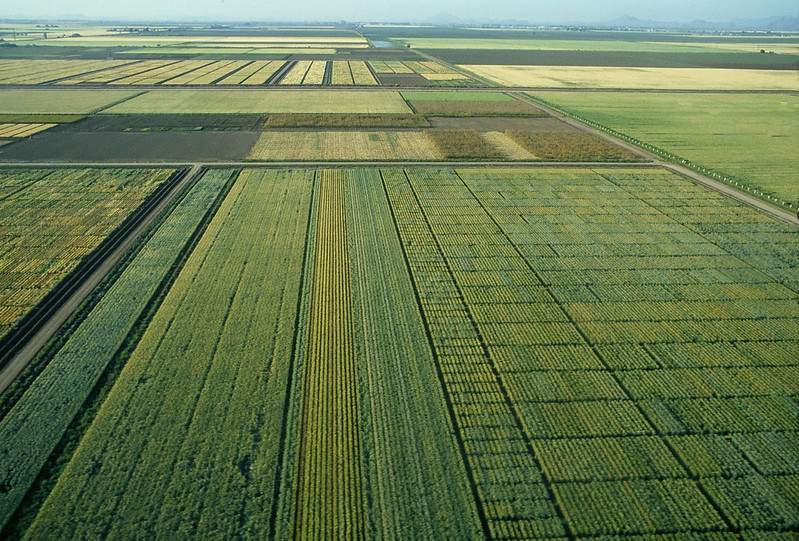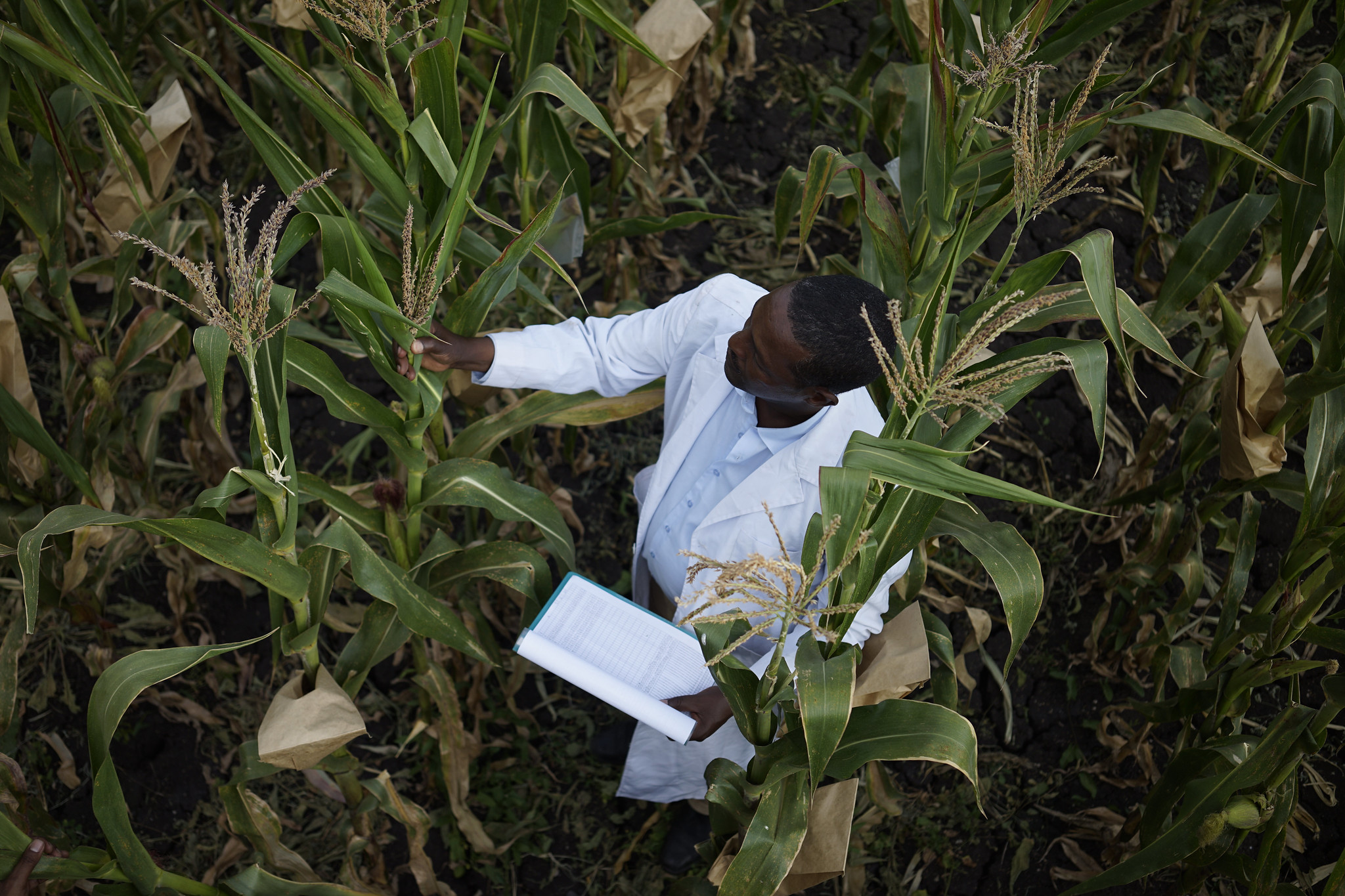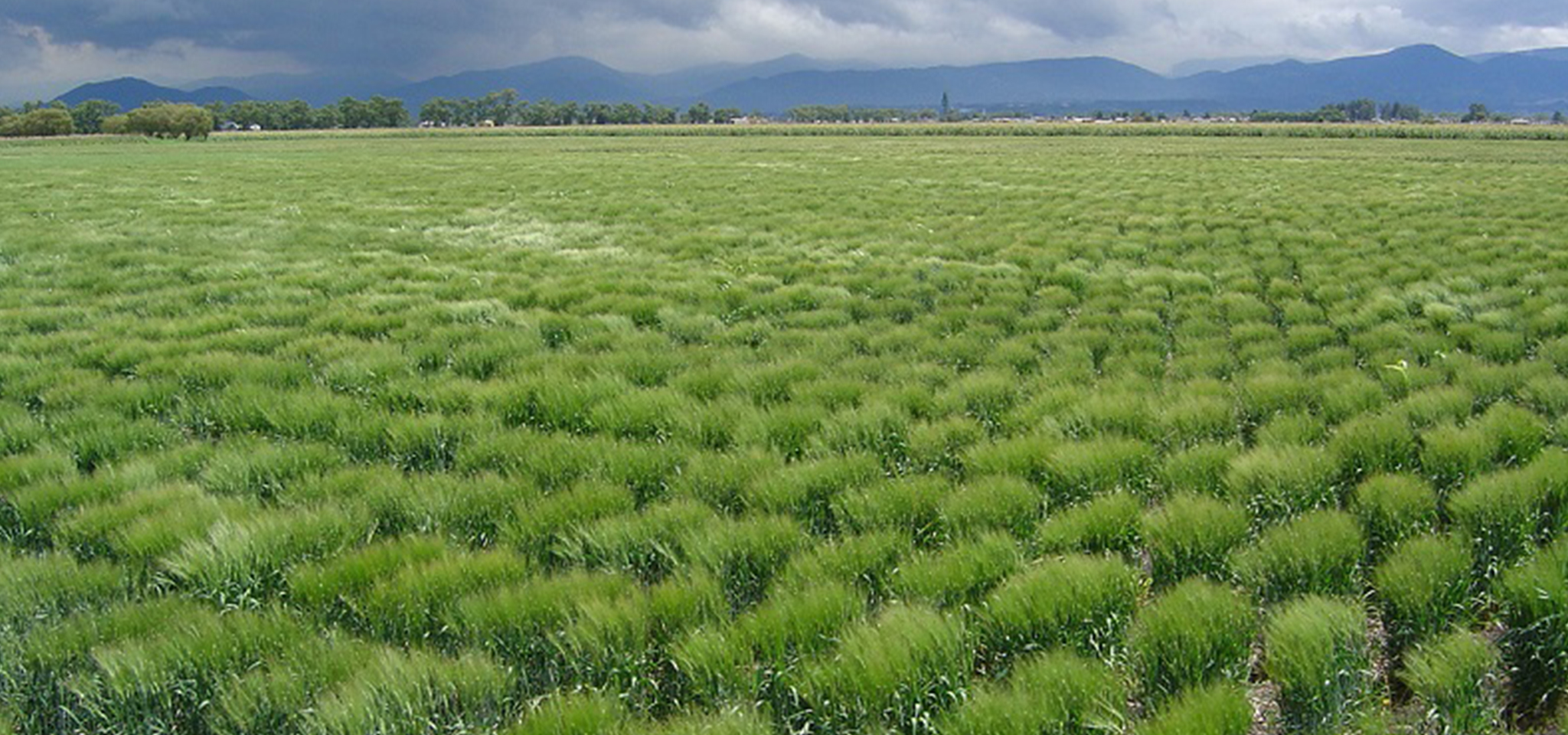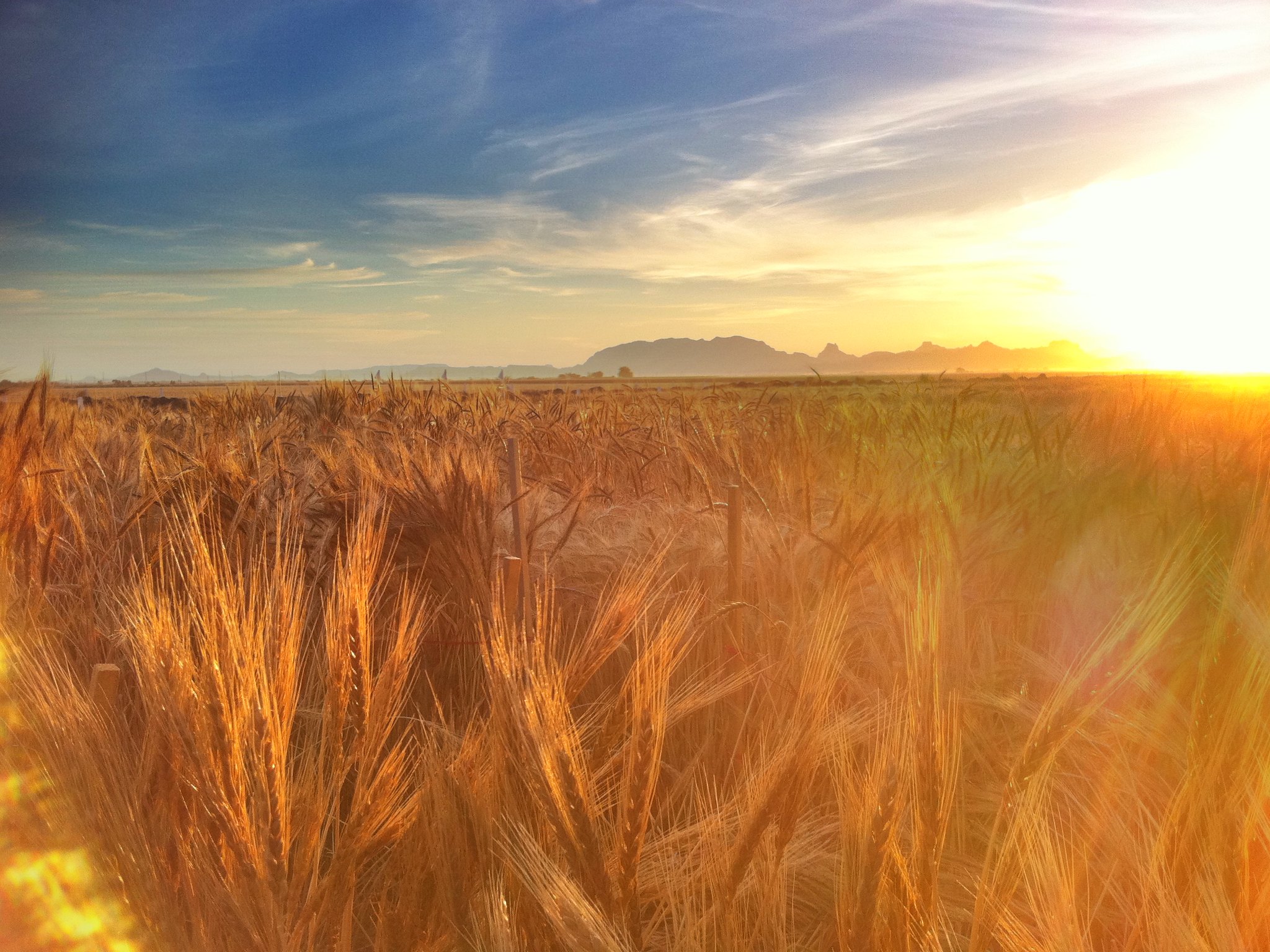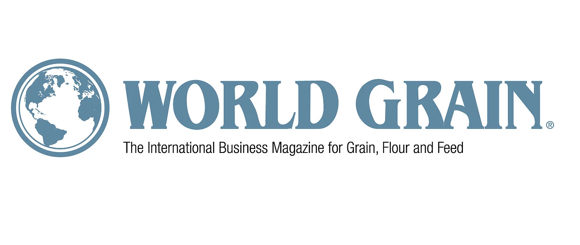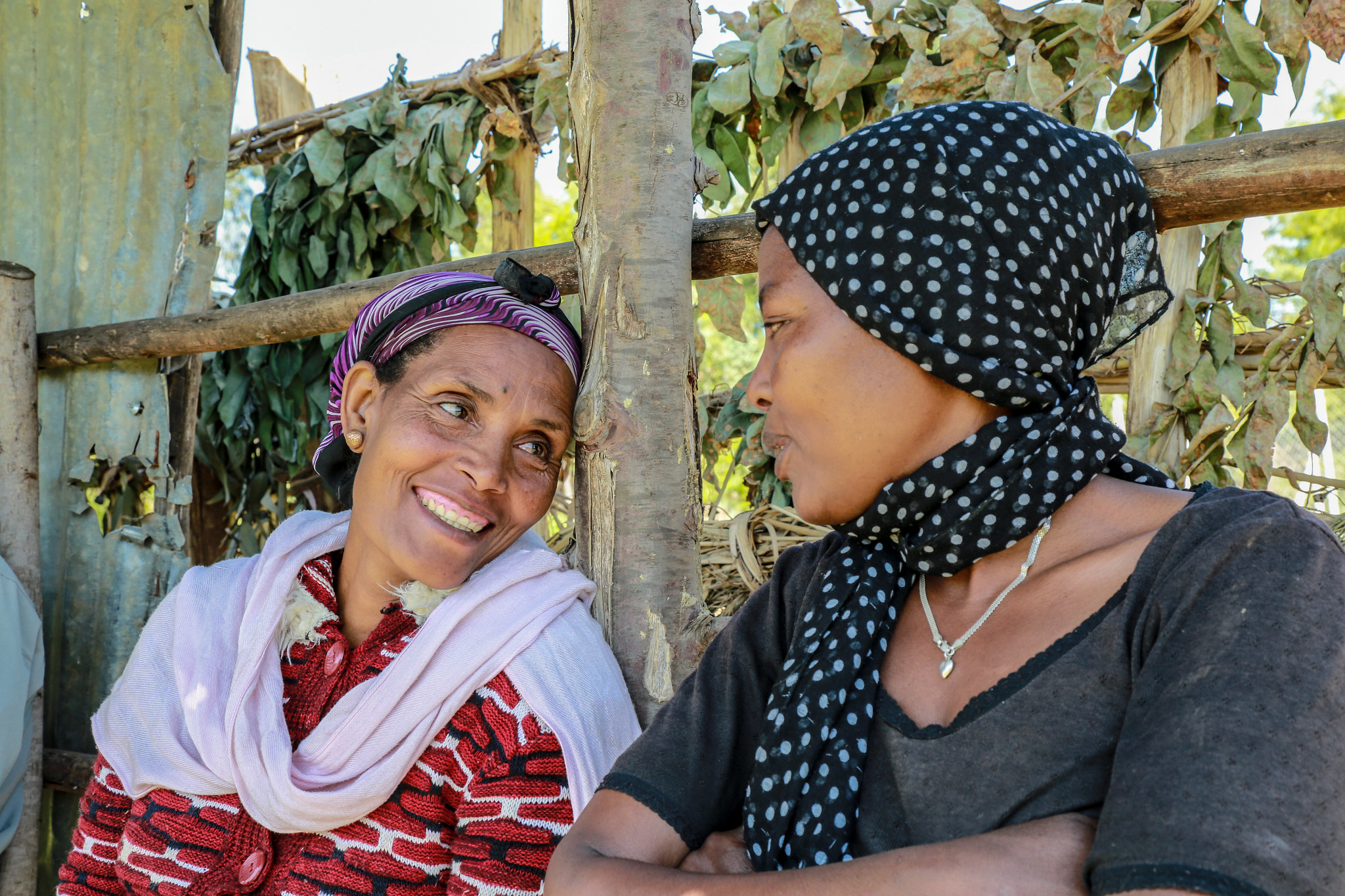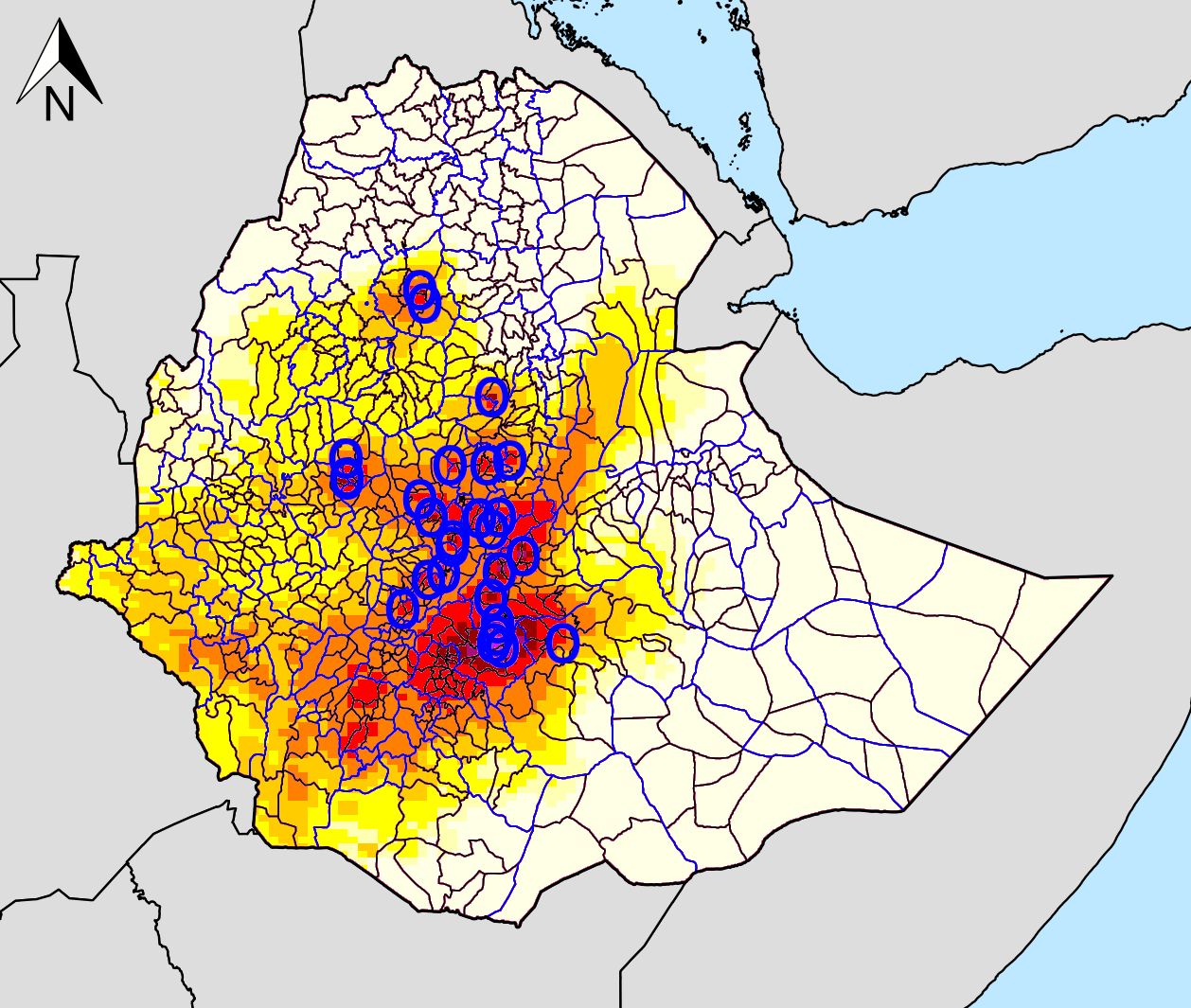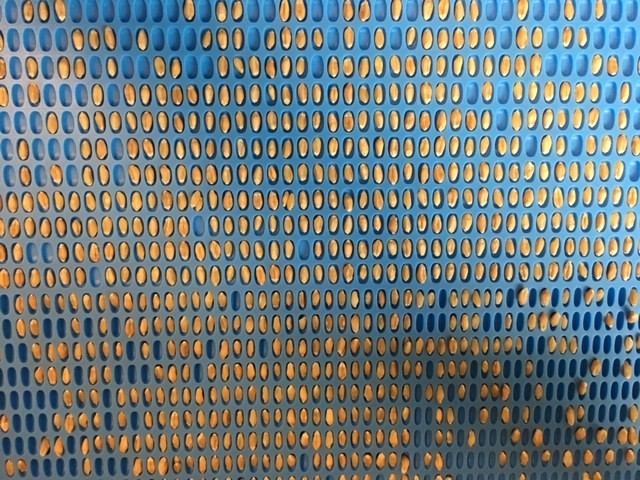Climate-change-induced heat stress and disease pathogens migrating across borders threaten the world’s wheat supply and food security in Africa and the Middle East. Building on the Durable Rust Resistance in Wheat (DRRW) global partnership, Delivering Genetic Gain in Wheat (DGGW) will mitigate serious threats to wheat brought about by climate change and develop and deploy new strains of wheat that are heat tolerant as well as resistant to wheat rusts and other diseases.
Cornell University has been awarded a $24 million grant by the Bill & Melinda Gates Foundation to continue to fund and expand the work of the Borlaug Global Rust Initiative (BGRI).
DGGW uses modern tools of comparative genomics and big data to develop and deploy varieties of wheat that incorporate climate resiliency as well as improved disease resistance for smallholder farmers in these politically vulnerable regions.”
The four-year grant builds on the successes of the BGRI, led by the DRRW project, funded by the UK Department for International Development and the Bill & Melinda Gates Foundation from 2008 to 2016.
Deadly wheat pathogens have been moving from the wheat fields of northern and East Africa into the Middle East. In their rush to identify genes that can resist evolving and virulent new strains of the disease known as stem rust, BGRI scientists have developed collaborative arrangements and facilities, with the crucial support of national governments and agencies, to screen thousands of samples of wheat each year from every continent under rust infection, to identify resistant lines.
DGGW is based at Cornell University and acts as the secretariat for the BGRI. Collaborations continue with national partners in Kenya and Ethiopia, as well as scientists at international agricultural research centers that focus on wheat, including CIMMYT and the International Center for Agricultural Research in the Dry Areas.
Advanced research laboratories in the U.S., Canada, China, Turkey, Denmark, Australia and South Africa collaborate on the project. So far, more than 2,000 scientists from 35 international institutions spread across 23 countries are involved in the consortium, and 37 countries contribute data to the surveillance network.
Objectives
- Mitigate serious threats to wheat brought about by climate change
- Develop new strains of heat-tolerant wheat
- Develop rust and disease resistant wheat
- Monitor spread of stem rust and other windborne wheat diseases
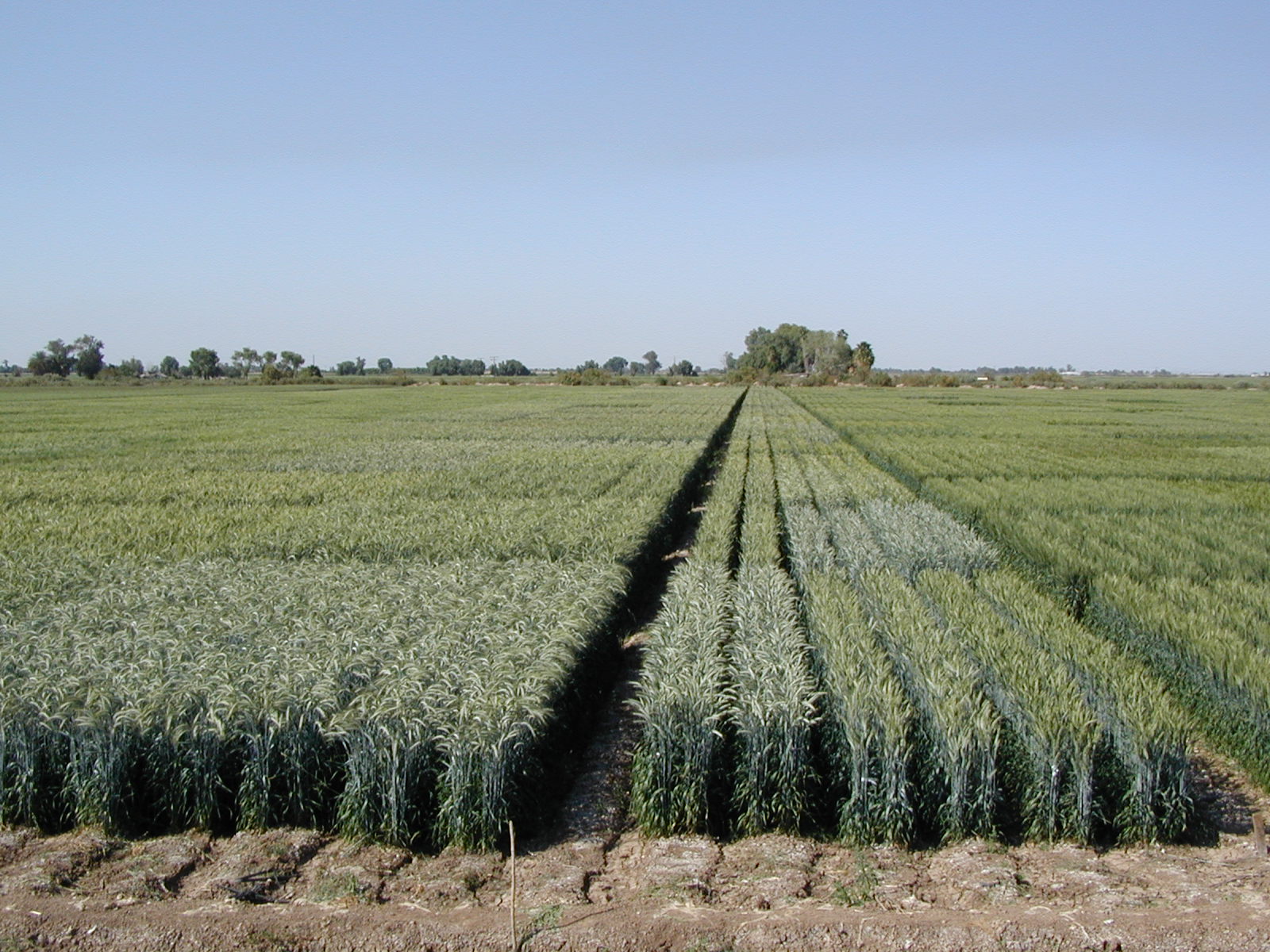
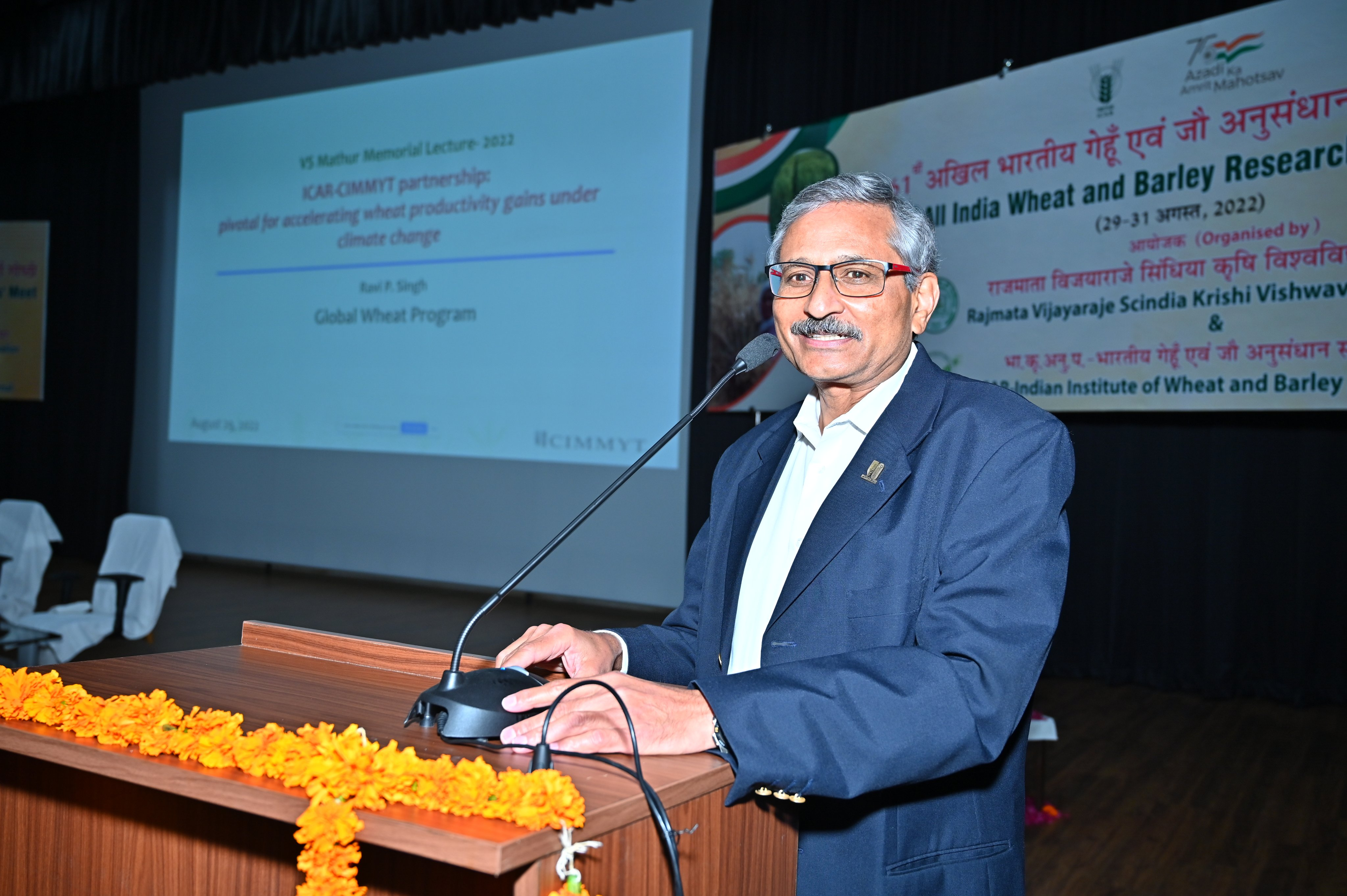
 Climate adaptation and mitigation
Climate adaptation and mitigation 